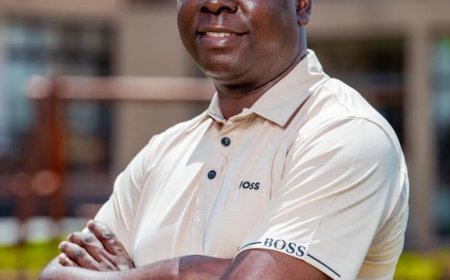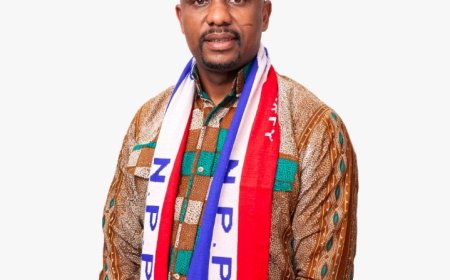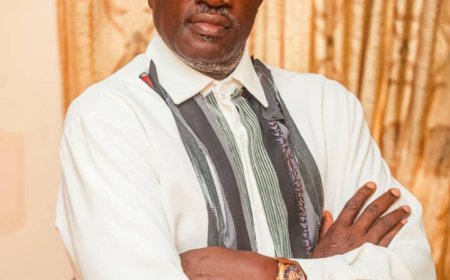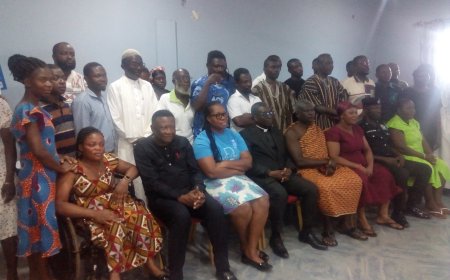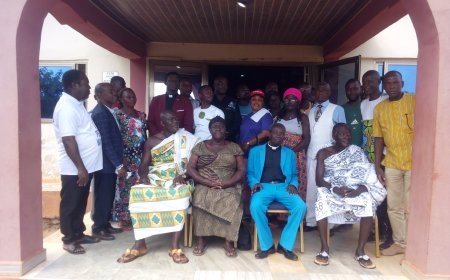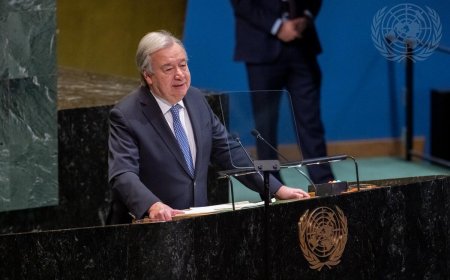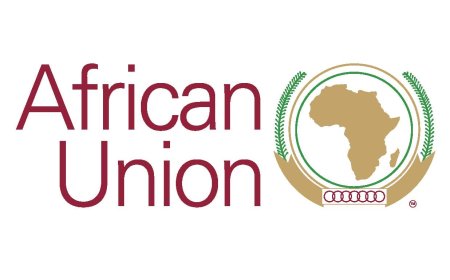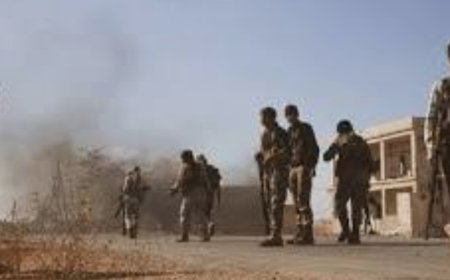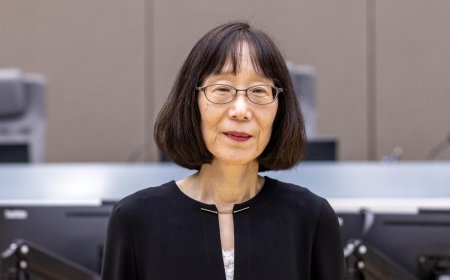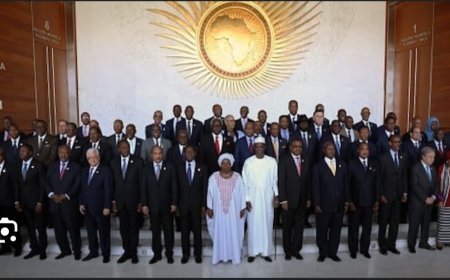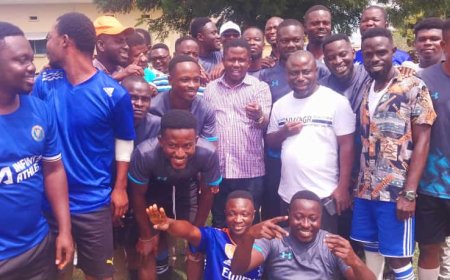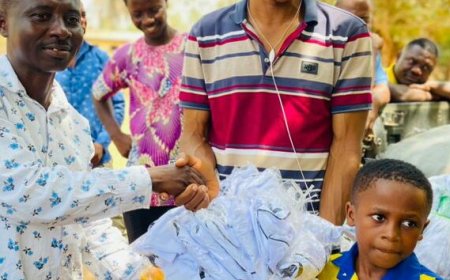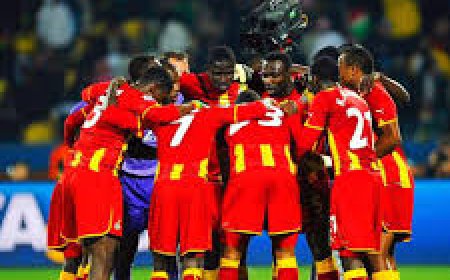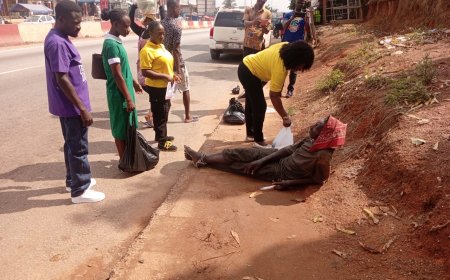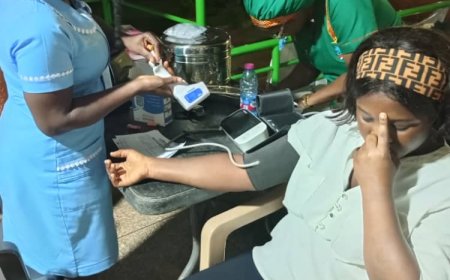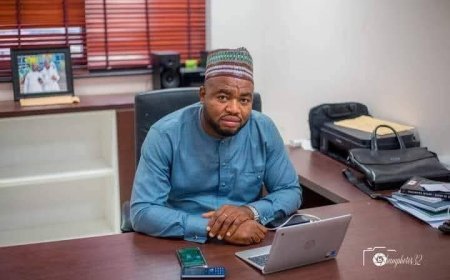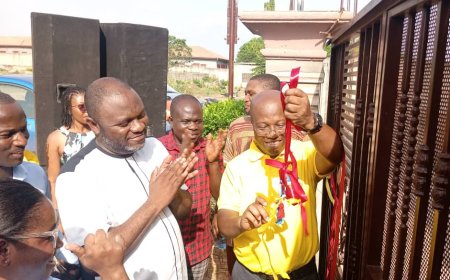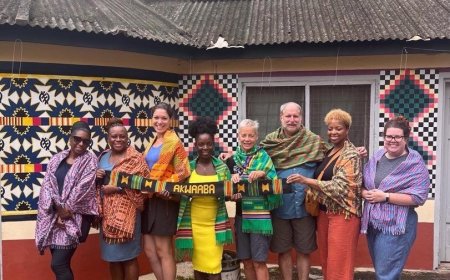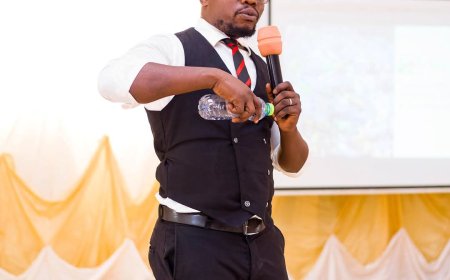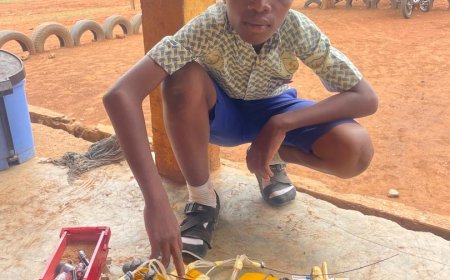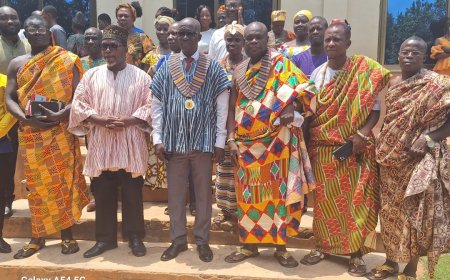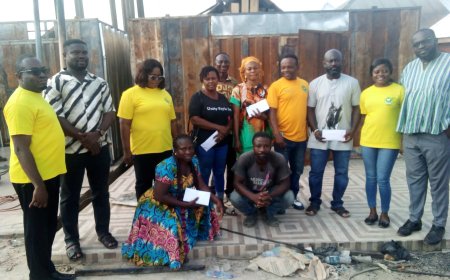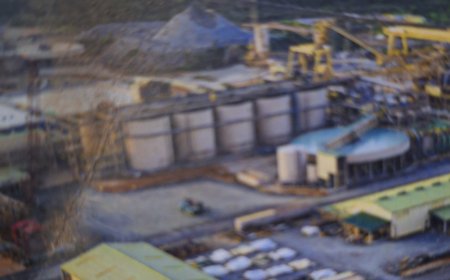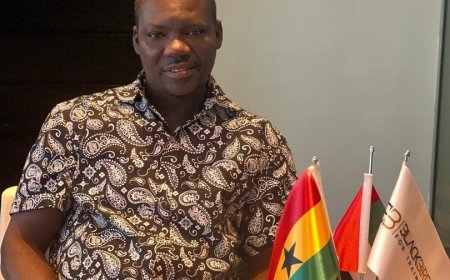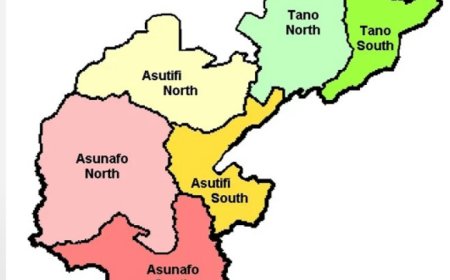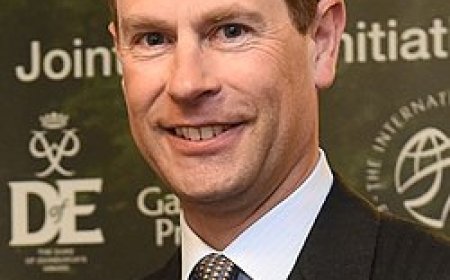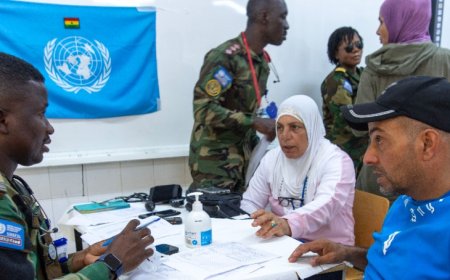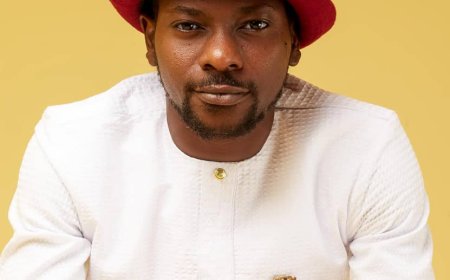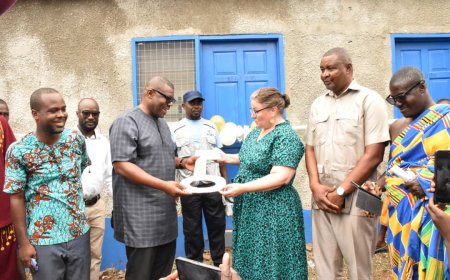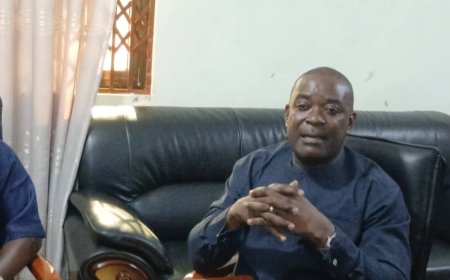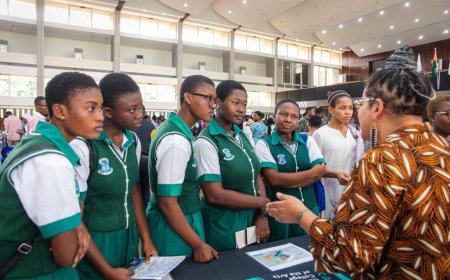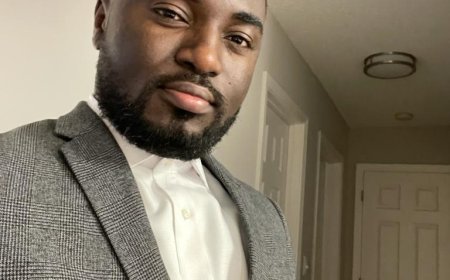CITIZEN HENRY MENSAH SEEKS SUPREME COURT MANDATE TO COLLATE SIGNATURES FOR REFERENDUM TOWARDS CONSTITUTIONAL AMENDMENT
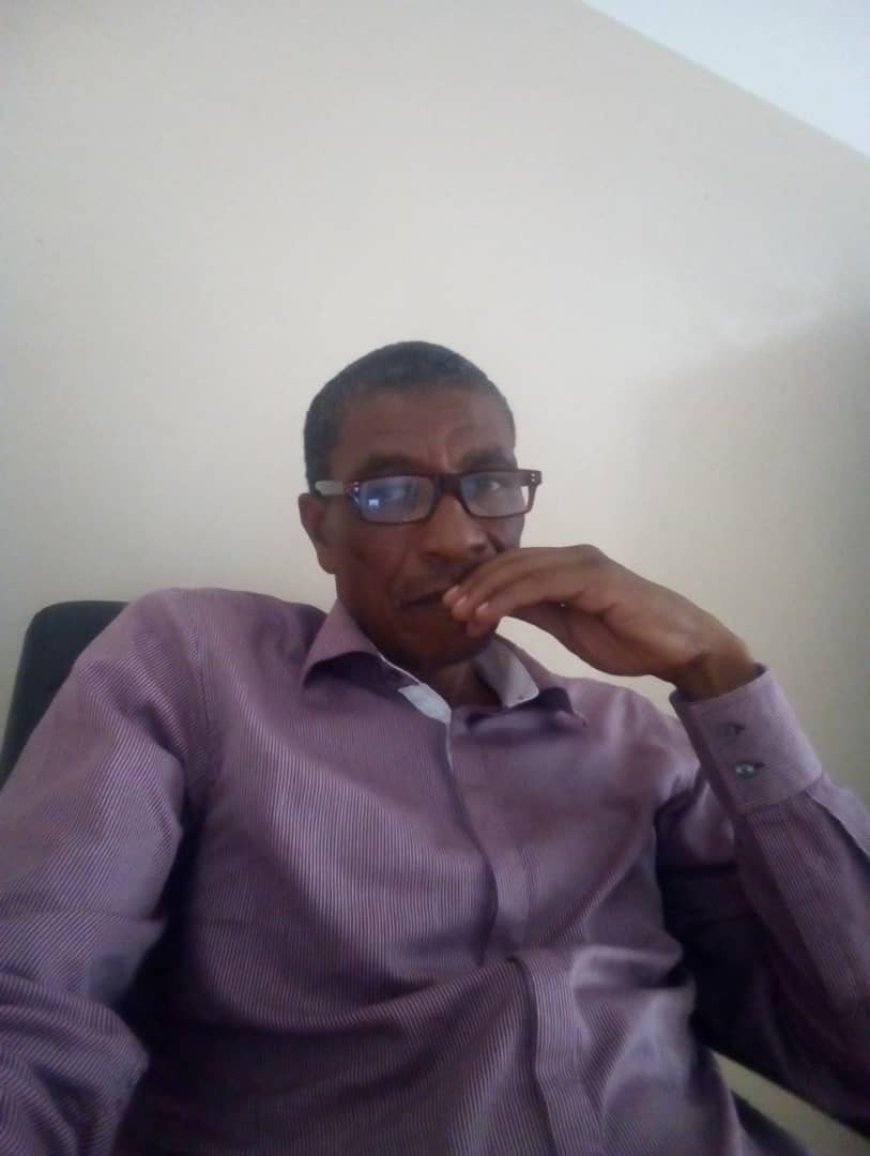
Citizen Henry Mensah, a Ghanaian resident in Taifa in Accra , in a writ file at the supreme court on August 15, 2023 seeks a declaration to grant him a legal mandate to collate signatures across the country to back the demand for a referendum, to comprehensively amend the 1992 constitution.
A declaration in pursuant to article 278(1) and 5 of the 1992 constitution of the republic of Ghana invoked by the president of the 5th parliament of the fourth republic mandating a commission of inquiry the Constitutional
review Commission (CRC) in matters of public interest.
That, its report presented to the President John Evans Atta Mills on 20th December 2011, but the sudden death of the president halted the process in organising for
referendum to amend the 1992 constitution, should be continued by the sitting president.
A declaration to review and implement the comprehensive
recommendations of the constitutional review commissions report submitted to the President of the 5th parliament of the fourth republic of Ghana in December 2011.
Again, by a consultative assembly, before coming into office, the ninth parliament of the fourth republic, to ensure a prudent economic management of the nation for the wellbeing of the people of Ghana.
The plaintiff, Henry Mensah, an Engineering Technician, brings the present action under article 2 (1) and 130 (1) of the 1992
constitution of the republic of Ghana.
According to him, in 2005, the African Peer Review Mechanism (APRM), in its comprehensive review of Ghana, identified several shortfalls in the country's democratic development and governance procedures.
Some of the issues raised were excessive powers of the president, an Immunity on prosecution for corrupt practices, the large size of the cabinet, separation of powers between the Executive and the
Legislator.
The fact that many of the Ministers are sitting members of Parliament, a situation seen as undermining the
powers of parliament.
The rest were the lack of independence of the Judiciary, insufficient involvement of women in the democratic process, numerous local conflicts over land tenure and chieftaincy.
He said following the APRM report, the Government of Ghana under
President Kufuor drafted a comprehensive Programme of Action to address the shortcomings that were identified.
That, at the African Heads of State meeting in Khartoum in January
2006, President Kufuor pledged his support for a review of the constitution, following a referendum of the people, if this was necessary to address any constitutional deficits.
Mr Henry Mensah noted that In the course of the presidential debates leading up to the 2008 general elections, the presidential candidates of all the major political parties declared their intention to institute a process to review the 1992 Constitution of Ghana.
That, there have been fervent calls by Ghanaians, public servants,
civil society organisations, research institutions and many others
requesting the comprehensive amendment of the 1992
Constitution in order to achieve advancement in good governance
and socio - economic development goals.
That, On assuming of office in January 2009, the government of
President Mills, initiated a process to review the operation of the
1992 Constitution, invoking the powers conferred on him by Article
278(1) of the Constitution to establish a Commission of Inquiry into any matter of public interest.
That, The Constitution Review Commission of Inquiry Instrument
2010 (C.I. 64), which provides for the appointment of the
Commission came into force on the 11th of January, 2010 and a nine - member Commission was sworn in by the President.
That, the instrument also provided for the membership of the CRC
and the appointment of its members, its terms of reference, its
secretariat, its mode of operation and the engagement of consultants.
That, the commission finished it work and presented its report on 20th December, 2011 to the then President John Evans Atta Mills.
That, the sudden death of President Evans Atta Mills , stalled the process for a referendum to amend the constitution to its completion, and successive presidents have also abounded the process till date.
That, the report stated that every action and recommendation made by the Commission has an overriding aim and the promotion of unity and cohesion of the Nation,
contributing to the attainment of a better standard of living for the
people of Ghana in general.
It further said the report recommendations will move the Constitution from a political document to a developmental document, shifting from the politics of democracy to the economics of democracy, so that Ghanaians may have a better life.
The report stated further that, Nation building is the responsibility of all citizens; it is not a task for any one group of persons or political party.
That, now it is obvious there is no political will, to have the constitution amended even though all presidential aspirant agreed on the constitutional deficit.
That, the economy of Ghana has no comprehensive national economic development plan and policy, an economy without policy document and direction.
That, it is long overdue to have a second look at the 1992
constitution, instituting an entrenched national economic plan and policies on education, health,
accountability, continuation of Government of Ghana (GOG) developmental projects
That, the executive arm of governments in the fourth republic
have taken advantage of the constitutional deficit to mismanaged the economy.
It is obvious that there is no political will to have the 1992 constitution totally amended to the disadvantage of politicians for their
political gains, and to the advantage of the people of Ghana in whose name the powers of governance is derived, as enshrined in the constitution, Article 1.1
The Sovereignty of Ghana resides in the people of Ghana in whose name and for whose welfare the powers of government are to be exercised in the manner and within the limits laid down in the 1992 Constitution.
Granting of this request, will be a great constitutional service to the
silent majority of Ghanaians, it can be generally said that democracy is expensive, a voice for the voiceless in autocracy.
In this regard, a referendum is one of the means to assess the stands of the majority in the country, rather than the representatives in parliament.
Referendum expresses a true will of the people, and reveal aspirations and ambitious of the citizens, on the other hand it does away with decisions that are of the few yet termed of the majority.
It is however, worthy and of merit when these referenda are used only on important concerns of the nation and for the nation.
Mr Henry Mensah noted that since the return to constitutional rule on 7th January 1993, under the fourth republic, Ghana's economy has witness gross mismanagement,
bureaucratic system of governance and abuse of state resources.
Ghana has also witnessed abandoned developmental projects commenced by previous administrations by successive
government even though enshrined in the 1992 constitution,
article 35 clause 7.
It says "As far as practicable, a
government shall continue and execute projects and programmes commenced by the previous government".
This law is not mandatory and successive governments have taking advantage of its deficit leaving the country with numerous uncompleted projects.
Indiscriminate looting, sharing and selling of government lands and properties acquired from independence, by the executive, past and present, uncontrolled and excessive borrowing.
Reckless cancellation of contracts signed by previous administration,
has over burdened the economy with judgement debt in billions of Ghana cedis on the tax payer.
The Auditor - General on his statutory audit report submitted to
parliament pursuant to Article 187 (5) of the 1992 Constitution for the
year ending December, 2021 has revealed gross mismanagement of
public funds.
The misappropriation of state funds is done by officials of public and civil services from various
government institution, Ministries, Municipal and district assemblies
(MDA) and others.
These includes details of financial irregularities and infractions identified and resulting from breakdown of internal controls.
It indicated various irregularities of public funds Amounting to GH¢17,483,483,539.25, equivalent to USD$ 3,000,000,000.00.
With conditionalities to Cushing the current economic financial crisis, the loan amount needed from the International Monetary Fund (IMF) as a bailout Money, is already in the government account system but cannot be accounted for.
Yet, culprits are been massaged by the Public Account Committee of parliament (PAC), to correct, return and ensure monies are accounted for and paid back to government chest. These has tainted the country’s past and present public officials.
It has also alarmed the people of Ghana about the injudicious use of resources by those entrusted with the power to govern, and the weak nature of our laws to protect the public purse, to ensure good governance and accountability.
What's Your Reaction?







